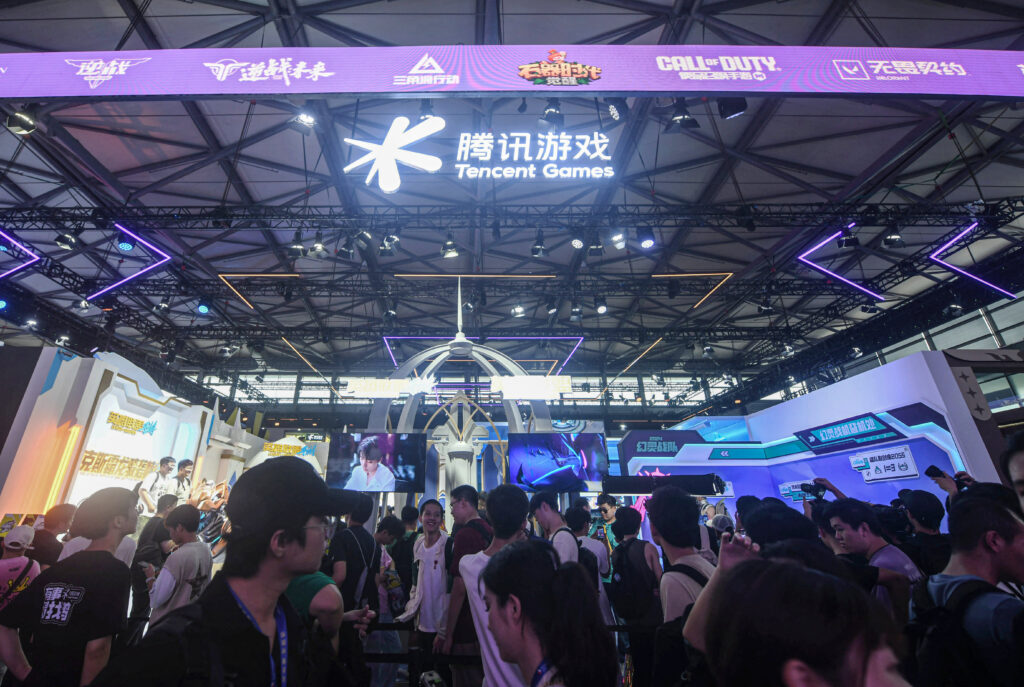Tencent Games was one of the exhibitors at ChinaJoy, which was held in Shanghai on July 26, 2024.
Str | AFP | Getty Images
BEIJING — When it comes to gaming, the use of generative artificial intelligence like ChatGPT is still in the exploratory stage, according to Lian Chen, general manager of Tencent Cloud’s internet industry division.
Parent company Tencent is one of the world’s largest gaming companies and owns U.S.-based Riot Games, the maker of popular games such as League of Legends and Valorant. Chen said his role will be to use technology to help game makers improve productivity and efficiency, including helping expand overseas this year’s Tencent hit mobile game “Honour of Kings.”
Chen said AI has long been used by gaming companies for functions such as pattern recognition, but that using generative AI effectively is costly.
OpenAI’s ChatGPT chatbot and similar technologies are enabling AI to better understand and generate content in a human-like manner. These tools can also generate content that is inaccurate or illogical.
“My personal view is that large scale applications [of generative AI] “It will take some time,” Chen told CNBC in an interview on Friday on the sidelines of the annual China JoyGame conference in Shanghai, according to a CNBC translation of his Chinese remarks.
The most pressing issue, Chen said, is “how to balance costs and outcomes to scale.”
Chen gave the example of how the generative AI must be trained to only give historically accurate answers when users interact with virtual characters in a game set hundreds of years ago, and said the company uses Tencent’s Hunyuan AI model as well as others it has developed in-house for such features.
He declined to comment on Nvidia, which makes cutting-edge chips highly valued for training AI models, and the United States has restricted exports of such semiconductors to China.
OpenAI’s ChatGPT and the underlying technology on which the application is built are not officially available in China, with Tencent, Baidu, Alibaba and a number of other startups developing alternatives there.
In March, Tencent’s AI lab unveiled a tool called the GiiNEX Game AI Engine that incorporates generative AI for developing in-game city scenes.
Tencent has already been using AI tools for 3D rendering over the past year or so, at least cutting the time required for the process from five days to around two hours, Chen said.
He said that the overall production time will not necessarily be shortened due to increased demands for quality, and companies will need to gauge how interested users are in the games.
Tencent’s domestic game revenue fell 2% year-on-year to 34.5 billion yuan ($4.75 billion) in the first quarter, but overseas game revenue rose 3% to 13.6 billion yuan.
Chen said he expects the company’s investment in AI to increase annually, even though it’s still in the exploratory stage.
“The hope is that one day there will be one or more cases that can be replicated quickly, [investment] That could suddenly increase the percentage,” he said.

